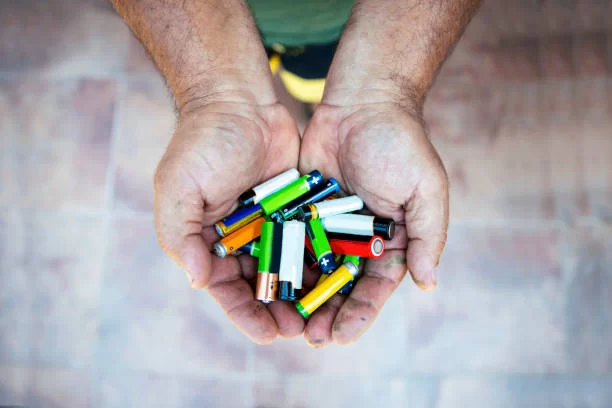Common Sources of Lithium Batteries and How to Dispose of Them Properly
As indispensable energy sources in modern life, lithium batteries are widely used in various portable devices and electronic products. However, once used, the responsible disposal of lithium batteries becomes an important environmental concern. This article explores common sources of lithium battery and their proper disposal methods, helping us manage electronic waste more responsibly.

Common Sources of lithium battery
In daily life, we frequently encounter the following common types of lithium battery:
- Mobile Phone Batteries: Smartphones and tablets typically use lithium-ion batteries (Li-ion batteries) as their primary energy source.
- Laptop Batteries: Many laptop computers use lithium battery, often either lithium-ion or lithium-polymer batteries (Li-Po batteries).
- Camera Batteries: Most digital cameras and camcorders also utilize lithium batteries, such as lithium-ion batteries.
- Power Tool Batteries: Batteries for electric screwdrivers, drills, and other power tools commonly fall under the category of lithium battery
- Electric Vehicle Batteries: Large-scale power battery packs used in electric cars and electric bicycles are mostly lithium battery.
Common Sources of Lithium Batteries and How to Dispose of Them Properly
In today’s technology-driven world, lithium batteries are integral to a myriad of devices and gadgets that have become essential to our daily lives. From powering smartphones to enabling electric vehicles, these batteries play a crucial role in modern society. However, with their widespread use comes the responsibility to dispose of them correctly to mitigate environmental impacts. This article delves into the common sources of lithium batteries and outlines proper disposal methods to ensure we manage electronic waste responsibly.
Common Sources of Lithium Batteries
Lithium batteries are ubiquitous in contemporary technology. Here are some of the most common sources where these batteries are found:
- Mobile Phone Batteries: Smartphones and tablets predominantly use lithium-ion batteries (Li-ion). These batteries are favored for their high energy density and long lifespan, which are crucial for the high-performance demands of modern mobile devices.
Laptop Batteries: Many laptops utilize lithium batteries, with lithium-ion and lithium-polymer (Li-Po) batteries being the most common. These batteries provide the necessary power to run portable computers efficiently, supporting both work and recreational activities on the go.
Camera Batteries: Digital cameras and camcorders rely on lithium batteries for their compact and reliable power source. Lithium-ion batteries are popular in these devices due to their lightweight and high-energy output, which is essential for capturing high-quality images and videos.
Power Tool Batteries: Lithium batteries are also widely used in power tools such as electric screwdrivers, drills, and saws. These batteries offer the advantage of lightweight, long-lasting power, which enhances the performance and convenience of various tools.
Electric Vehicle Batteries: In the realm of transportation, electric vehicles (EVs) and electric bicycles predominantly use large-scale lithium battery packs. These batteries are essential for providing the substantial energy needed for long-range travel and efficient operation of electric transportation.

How to Dispose of Used Lithium Batteries
Proper disposal of used lithium batteries is crucial to avoid environmental pollution and ensure the safe recovery of valuable materials. Here are several effective methods for disposing of used lithium batteries:
- Recycling: Recycling is the most responsible way to handle used lithium batteries. Many communities have designated battery recycling bins or collection points where you can drop off old batteries. These facilities transport the batteries to specialized recycling centers where they are processed to recover valuable materials like lithium, cobalt, and nickel. Recycling also ensures that hazardous substances are managed safely, preventing them from contaminating the environment.
- Avoid Disposal in Regular Trash: Lithium batteries should never be disposed of in regular household trash. These batteries contain hazardous materials that can leak into the soil and groundwater if not handled properly. The chemicals in lithium batteries, including lithium salts and heavy metals, pose risks to both the environment and human health. Proper disposal through recycling or designated hazardous waste programs is essential to prevent pollution and health hazards.
- Retailer Recycling Programs: Many electronics retailers and battery manufacturers offer recycling programs for used batteries. These programs often include drop-off bins in stores or mail-in services. Bringing your used batteries to these retailers ensures they are handled responsibly and recycled in accordance with environmental regulations.
- Safety Precautions: When preparing lithium batteries for disposal, safety is paramount. Avoid short-circuiting or direct contact between electrodes and metal objects, as this can pose risks of fire or explosion. To safely store batteries for recycling, use double-layer plastic bags or dedicated battery storage boxes. This precaution helps prevent accidental leaks or reactions during transportation.
- Community Collection Events: Some communities organize special collection events for hazardous waste, including lithium batteries. These events provide an opportunity for residents to dispose of their old batteries safely and responsibly. Keeping an eye out for these events can help ensure that batteries are disposed of in an environmentally friendly manner.
Conclusion
- The proper disposal of used lithium batteries is a responsibility that must be taken seriously. By utilizing designated recycling facilities and participating in retailer recycling programs, we can significantly reduce the environmental impact of electronic waste and promote the recovery of valuable materials. This conscientious approach not only helps conserve resources but also protects our ecosystems and public health from the dangers associated with improper battery disposal.
- Raising awareness about the importance of managing electronic waste responsibly is crucial for fostering a culture of environmental stewardship. It is imperative for individuals, businesses, and communities to work together to implement and support effective recycling practices. By doing so, we can ensure a cleaner, more sustainable future and contribute to the responsible use of technology in our daily lives.
